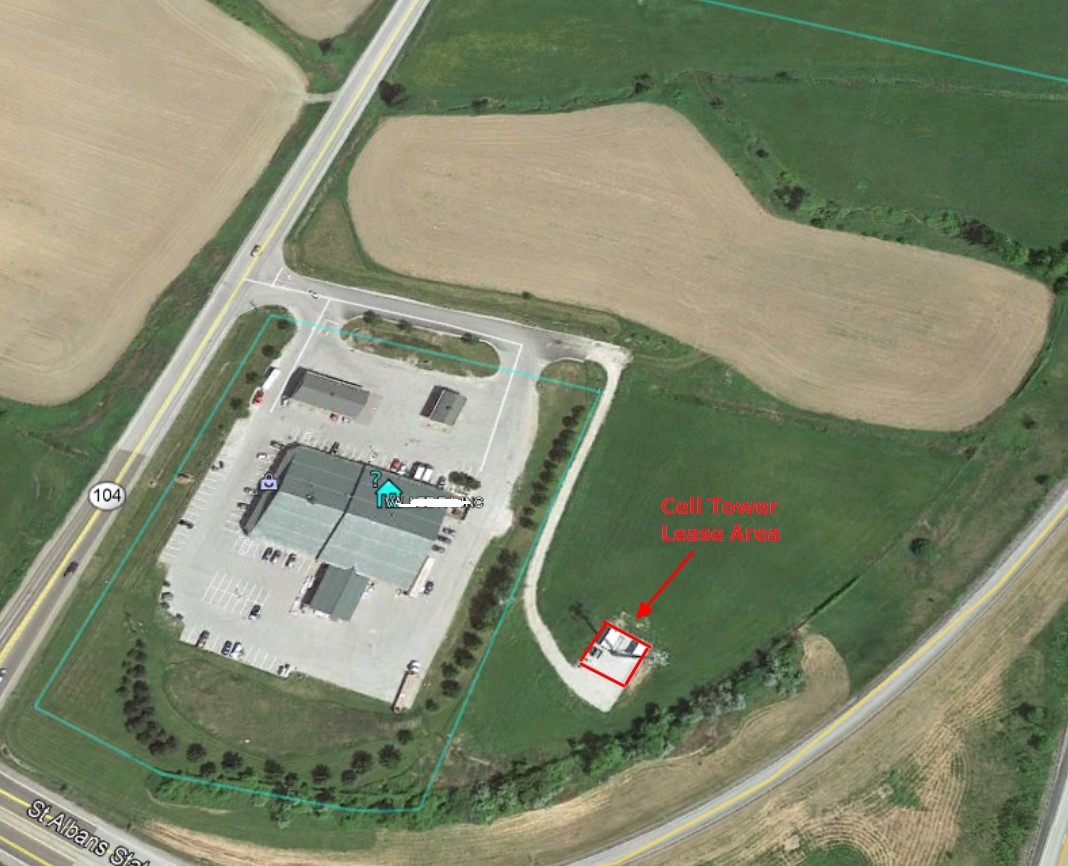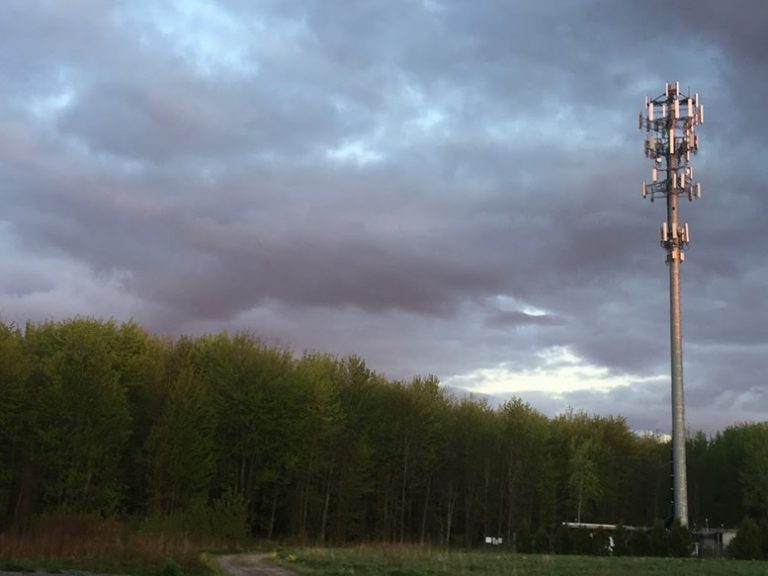Buying Property that Comes with a Cell Site Lease
Before purchasing a property that includes a cell tower or a building with existing cell sites, there are some issues to consider. These factors mainly involve the current status of any lease or easement associated with the tower and your present or plans for the property.
A thorough understanding of these two variables can help you to determine what value (or lack thereof) the cell tower brings to the property, and better equip you to evaluate your purchase. We have prepared a list of questions that savvy purchasers should ask before putting forth an offer on a property with a cell site lease.

Has the lease already been sold?
More specifically, is the lease still in effect and does it include future rent payments to the new property owner, or has the seller (or previous owner) of the property already sold the lease via a cell tower lease buyout? If the previous landowner sold the cell tower lease, the agreement would often be in the form of a fixed or perpetual term easement, or the previous owner could have agreed to a long-term lease for a one-time lump sum payment. Either will show up in the title report, but you have to know what they are and look for them.
Perpetual Easement
If the current agreement is a perpetual easement, it could contain a permanent right that entails no future revenue payments. The perpetual easement is a common practice of tower companies or third-party lease buyout companies, enabling them to purchase a ground lease that is already in place. From the tower company or lease buyout company’s standpoint, an easement allows them to retain many of the same benefits as the property owner – but without the liabilities.
Usually, a one-time lump sum payment is made by the buyer of the lease, leaving any new property owner with an unusable portion of land that is dedicated to the cell tower, access, and utility right of ways. A buyer should approach these situations as though any value related to the tower has already been extracted, leaving just the encumbrance of the easement behind. The easement results in the loss of use of a portion of your land, and the fact that your property will contain a cell tower for as long as the easement holder desires. Additionally, depending on the terms of the easement, other liabilities could include allowing access to the site, providing maintenance for any shared access roads, real estate taxes, insurance, etc.
Depending on the situation, a perpetual easement can become a significant liability when viewed on a long-term, permanent basis. Thus, before buying a property with a cell tower that is already under a perpetual easement, the buyer should consider whether the location of the tower will impact future development plans on the property. It is very difficult and costly to move or remove a tower in these situations.
Assignment of Lease for a One-Time Lump Sum Payment instead of Ongoing Rent Payments
It is also common for a tower company or third-party lease buyout firm to pay a one-time lump sum payment for a long-term assignment of the lease. Buyers typically chose this option when a perpetual easement is not feasible. Like the perpetual easement, it does not involve additional revenue payments and leaves the subsequent property owner in a similar position for the specified amount of time in the lease. Because buyouts are often longer than 50 years, it is important to understand the lease buyout agreement and factor this into your decision.
Contact Us
Can I renegotiate the lease because I bought the property?
If the lease was not sold already, you might wonder if you can renegotiate its terms since you are a new owner. In most instances, the answer is no; you cannot renegotiate. The lease almost always contains covenants to ensure it remains intact through land ownership changes. However, there is one loophole: if you purchase the property with the tower through a foreclosure, the foreclosure legal process might extinguish lease rights. Whether the lease is extinguished would be a case-by-case, specific question for you to consider with your attorney – however, it is one worth investigating. Since you will not likely be able to renegotiate the lease until the tower company or wireless company needs an amendment such as extending the lease, adding additional lease area, or changing lease rights, it becomes critical for you to understand the lease agreement that you will be acquiring the property. If the seller of the property does not provide you with the lease, make sure to ask for it.
What are my obligations as the landowner under a cell tower lease?
The language in the lease will dictate the landowner’s obligations. On average, a landowner who acquires a property with a cell tower lease will be:
- obligated to allow unlimited access to the leased site,
- carry specific insurance coverage levels,
- pay taxes on the real property (with possible reimbursement for the leased area),
- maintain any shared right of ways,
- and not engage in any land use that could interfere with the cell site’s operations.
Unlimited access, utility, and the access right of ways are important obligations to consider, as they will not only affect the company who owns the cell tower, or even the wireless service providers, but any vendors, contractors, or subcontractors who become involved. Additionally, there could be some other landowner obligations in the lease that can limit usage, development, or sale of the property, such as rezoning, a no competition clause, lease expansion rights, and right of first offer or refusal language.

How much is the lease worth?
As touched on above, if the lease was already sold it is likely that it depreciates the value of the property rather than increases it. As the new property owner, you will be subject to the obligations of the lease, but without the revenue that it pays. There is the chance that the tower owner or cell site owner will need additional space outside of the easement area which may entitle you to more rent, but don’t count on it. Additionally, if the land owner has retained any rights to the revenue of additional carriers that are added on to the tower, there could be a cash flow stream related to the revenue share of these additional carriers to value. All of these things are worthy of consideration if you are thinking of buying a property with a lease that has already been sold; however, they are unlikely scenarios.
If on the other hand, the previous landowner did not sell the lease, there will be a value (possibly substantial value) in the lease. This value is tied to the recurring rental revenue that the lease generates. It is important to investigate not only what the lease currently pays, but what it could pay and be worth in the future, and the timeline associated with it. Understanding this will allow you to unlock the full value of the tower or cell site on the property and the lease behind it. Using the most comprehensive cellular asset database in the country, and a team of highly experienced and expertly skilled professionals focused solely in this field, Steel in the Air can help you do just that. We can provide a valuation of the cell tower lease or help you broker the lease if you wish to sell it. Some of our clients purchase property and then immediate sell the tower lease in order to partially fund the acquisition of the property.
Will the tower or cell site hinder future development of the property or building?
Financially, it may or may not make sense to have a tower on the property. The tower may not influence the current use of the remaining property, or the tower may, in fact, be the highest and best use for the specific section of the property at the time. However, it is prudent to keep the future highest and best use of the property in mind. The highest and best use review includes the forecasted timeline for any future development, and how the tower and a related agreement could impact anticipated land use and development of the property. Close attention should be paid not only to the lease area but to access and utility right of ways and any other potential lease expansion options that could exist. These tower agreements rarely include termination rights, or a right to relocate the tower on behalf of the land owner. Even if a right to relocate the tower exists, the land owner usually must bear the expense of the relocation, which can come at a considerable cost, and must be factored into any decision.
Last Thoughts
of other factors to consider when purchasing a property that includes a cell tower. Agreements related to these towers do not always involve just the land directly under the tower and related ground equipment (the compound area). In many of these agreements, rights may involve access and utility right of ways, a larger lease or easement area than the current compound, or the right to expand or alter the lease area if needed. To determine how the tower or cell site impacts the property, you must gain a full understanding of any current agreement regarding the tower. This knowledge, combined with any future usage or development plans of the property, will provide you with an idea of where the tower lies on the spectrum, ranging from a cash flow producing asset on the one hand to an expense generating liability on the other.
At Steel in the Air, we not only determine the current value of the tower on the property, but also
- Uncover the tower’s true net value to you and the property as a whole;
- Assess the tower’s full potential value into the future; and
- Lay out the path to get you there.
Since 2004, Steel in the Air has served over 4,000 clients, reviewing over 13,000 cellular leases for private, public, and municipal landowners. We take pride in considering all possible factors to arrive at the best outcome for our clients. If you are considering the purchase of a property that contains a cellular tower or rooftop cell site lease, please don’t hesitate to contact us to see how we can help you.










